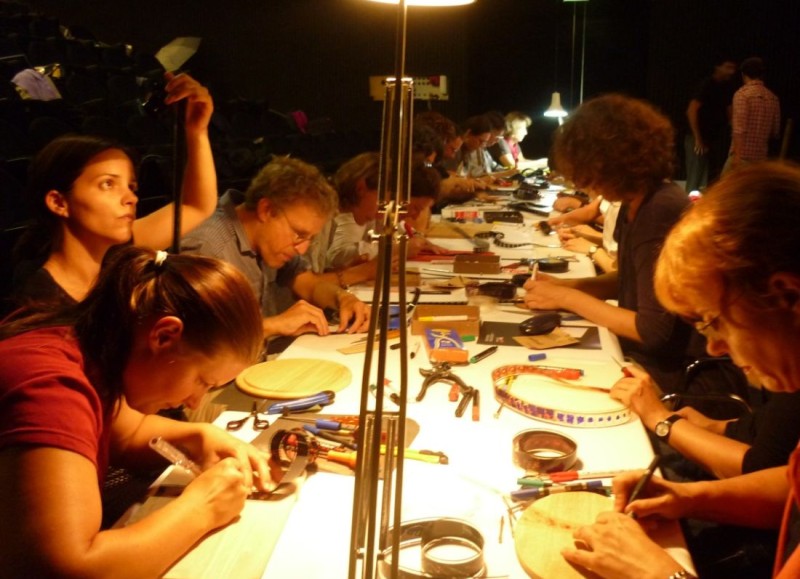The basis of the Film Museum's education policy has always been the "screened presence" of film: the cinema event. The cinema is the most suitable place for encountering the medium of film, it is the unique crossroads between a historical technology, an aesthetic setting and a social situation. The Film Museum has received much recognition for this work, both at home and abroad; the claim it stakes for a museologically appropriate mode of presenting film continues to be a highly regarded aspect of its education work. The radical (in the sense of "going to the roots") approach of the Museum's co-founders, Peter Kubelka and Peter Konlechner, was a novelty in 1960s Austria. They declared film to be a "museum object", thus introducing it into high culture, while keeping in mind the primary role of the sensual film experience (emphasizing independent and avant-garde positions in the process).
Despite the supposed "purisim" of the Film Museum, "education" was already understood in broader terms at the time, referring to those activites which go beyond the regular (evening) film screenings, or which complement and expand upon this presentation form. Since the 1960s, the institution has offered contextual material on the subjects of film history and film aesthetic in diverse ways (publications, lectures, discussions with artists, guided tours through the collections, etc.). Since 2002, these activities have gradually been increased. Issues of contextualization, the translation of the cinema experience into an educational framework (in cooperation with universities and schools), as well as publication and editorial work in connection with the collections have assumed an ever more important role in the museum's work.
The Film Museum has been considered a "School of Seeing" (Die Zeit) ever since its inception in 1964. This school does not commence when one becomes an adult or enters university. The aim of the Austrian Film Museum's film education policy is to start giving impulses long before that, focussing on a critical and playful examination of moving images – both from the past and the present. As Umberto Eco says, "A democratic civilization will save itself only if it makes the language of the image into a stimulus for critical reflection, not an invitation to hypnosis."
In addition to the changing retrospectives of the Austrian Film Museum (our "temporary exhibitions") long-term cyclical programs are closely connected to the educational work and collection policies of the Film Museum. Since 1975, several discussions with filmmakers have been recorded, since 2004 almost all educational events (lectures, symposia, debates, Q&As) are being documented on audio or video.
